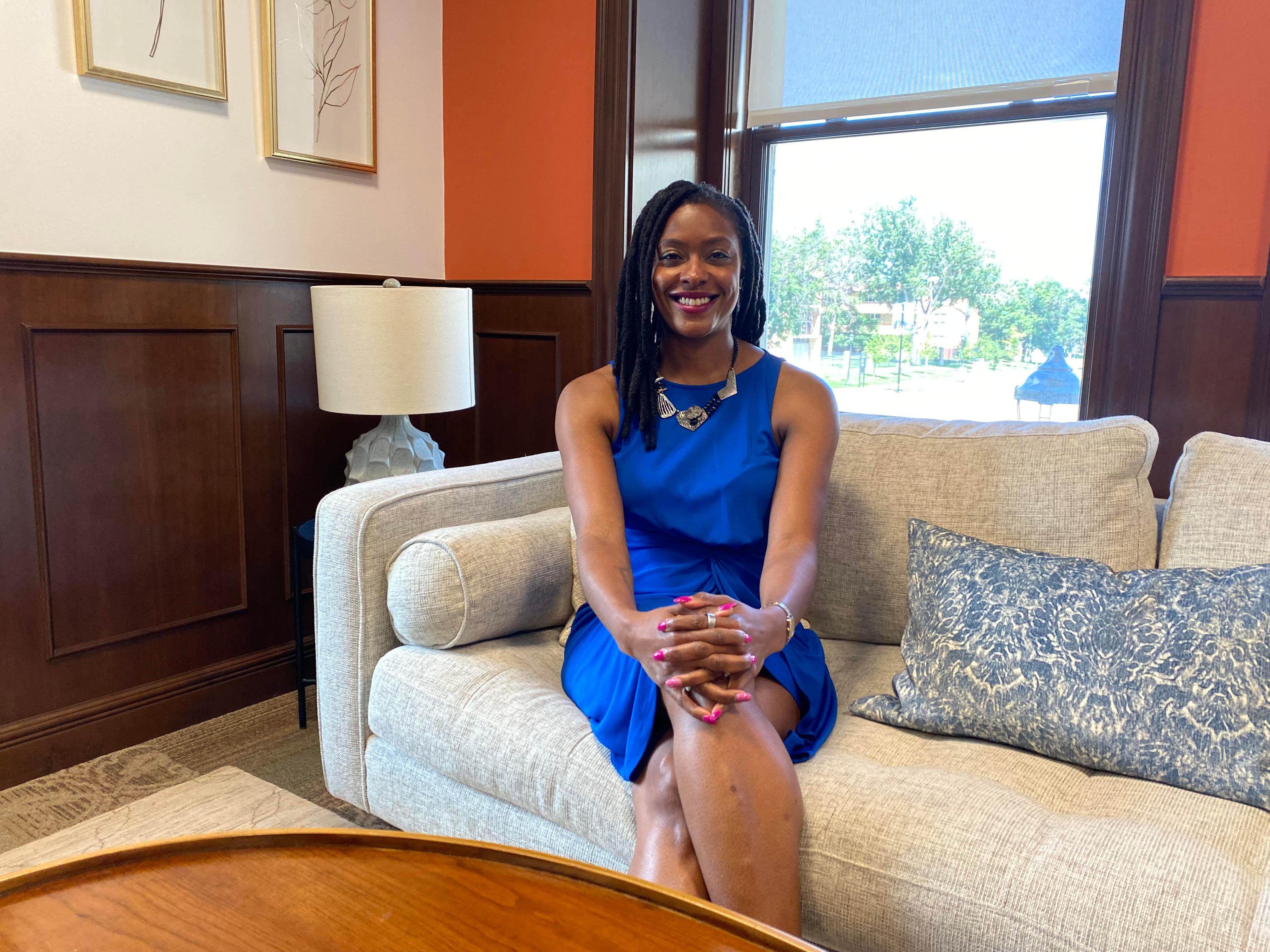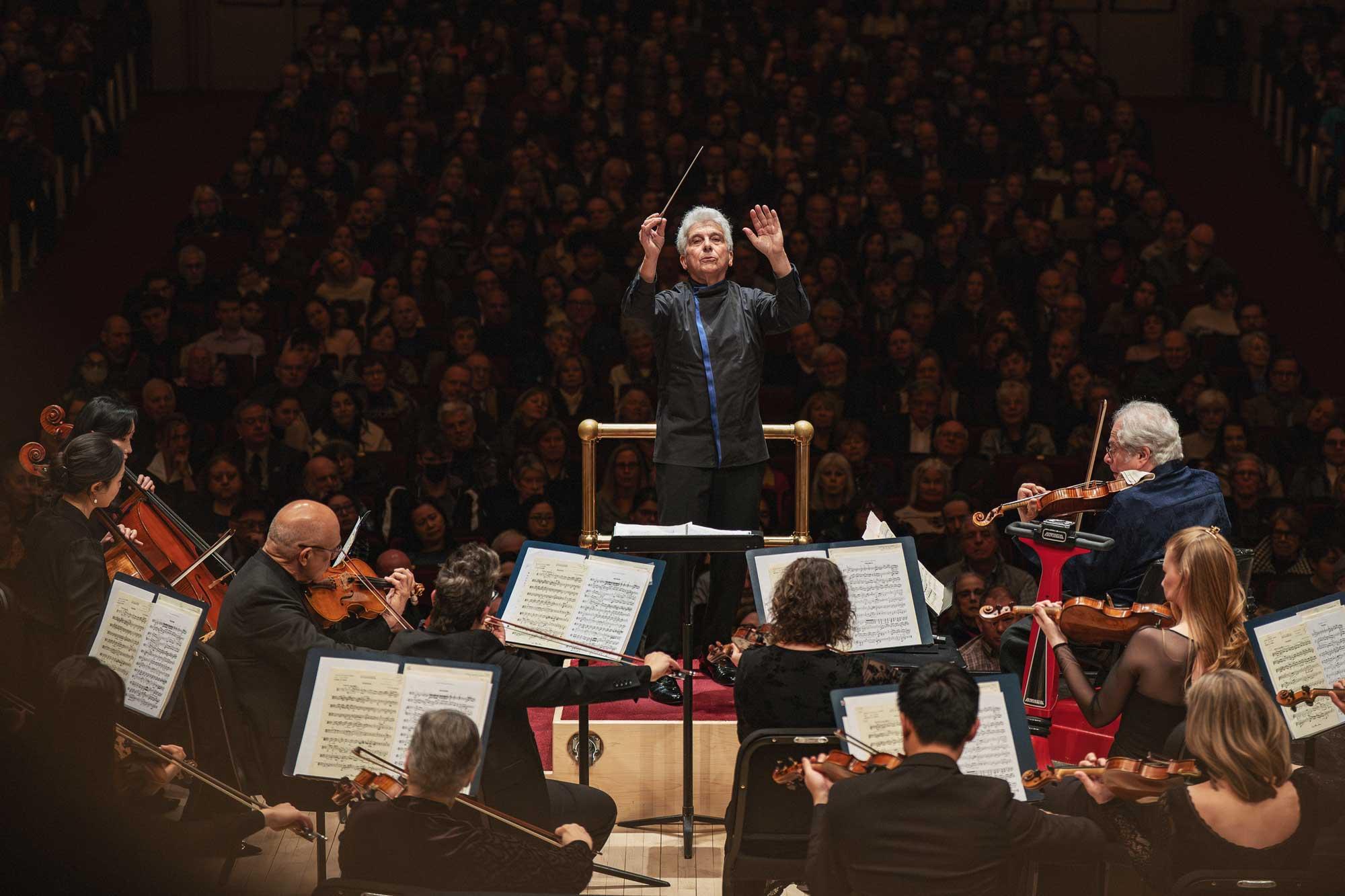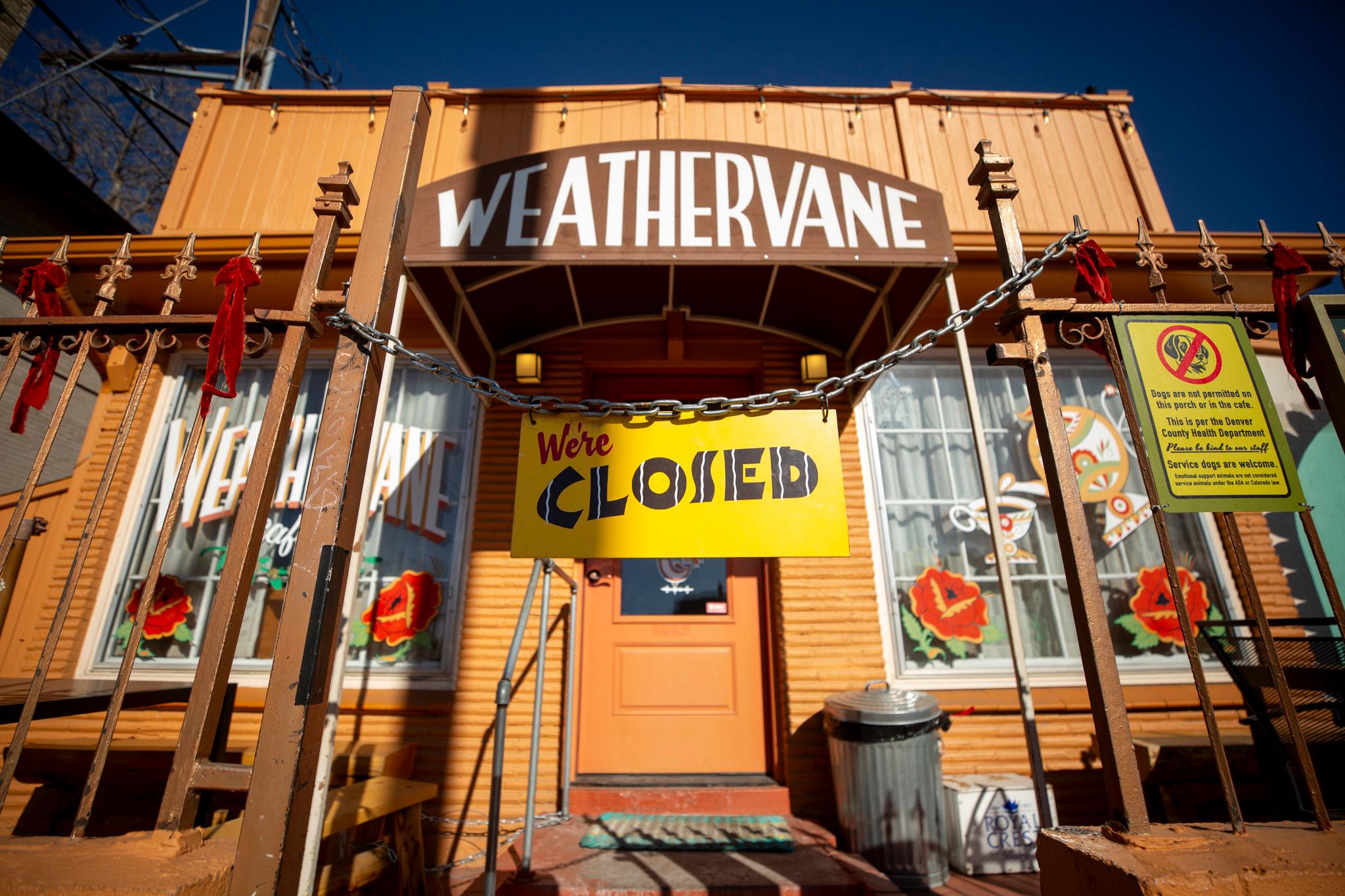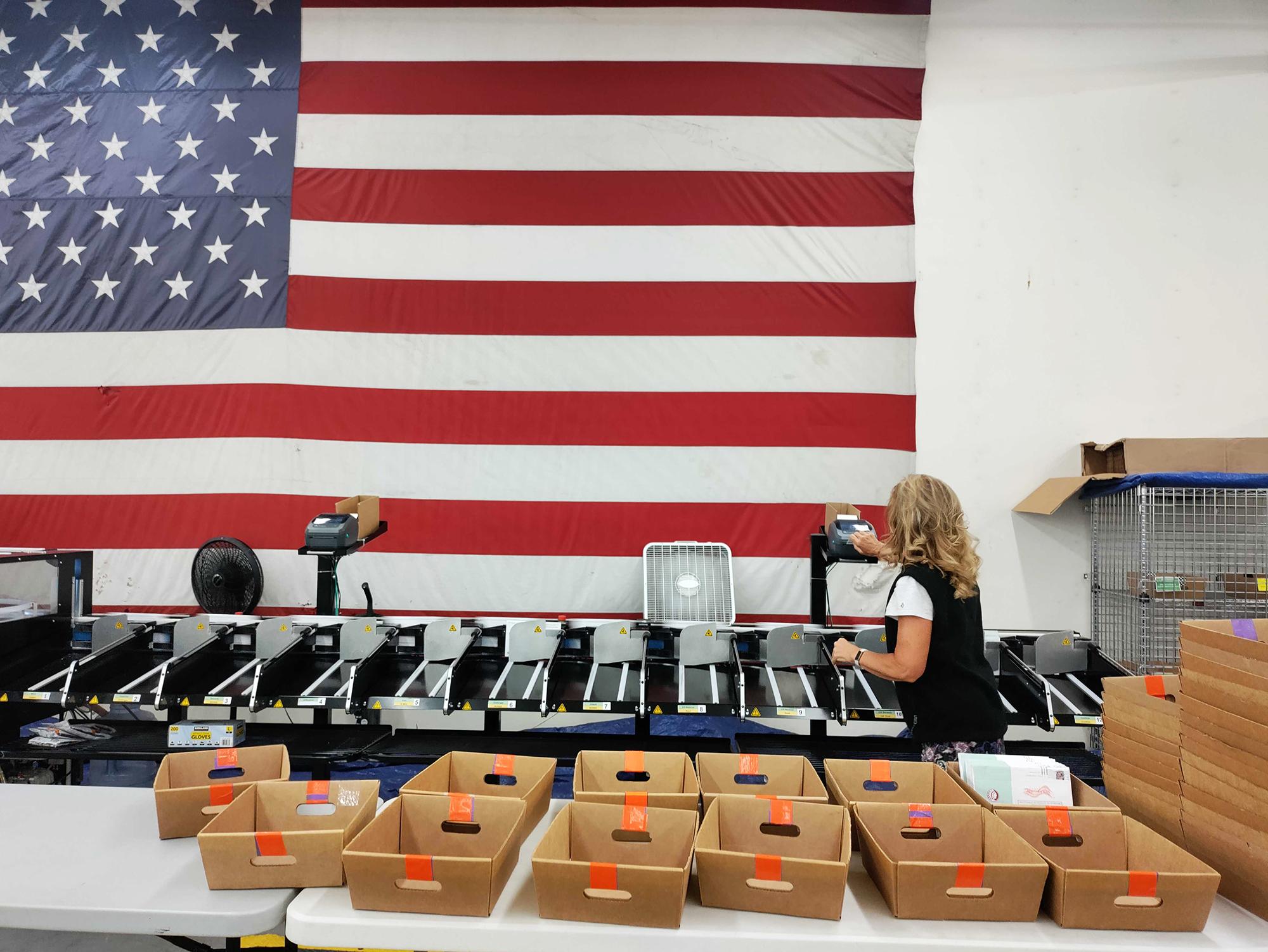
Colorado College recently promoted Manya Whitaker from interim to permanent President. She started working at the Colorado Springs college in 2011, and her background includes an emphasis in education. She took over as interim president in 2024 after the resignation of L. Song Richardson.
KRCC's Kendra Carr spoke to Whitaker about what she brings to the position and her goals as the leader of the small liberal arts college.
This interview has been edited for length and clarity.
KRCC’s Kendra Carr: You previously taught classes on social and political issues in education. How does that inform your views and philosophies as an administrator?
Colorado College President, Manya Whitaker: My classes were about how to teach K - 12 classroom spaces by engaging with students in an inclusive manner. And that's true no matter if it's a K - 12 classroom or the president's office at Colorado College. My philosophy was always to meet people where they are, but don't stay there. That's what I taught my pre-service teachers. It's what I taught the undergraduates who just went into the field of education and it's very much kind of the ethos I bring into a leadership position--making sure people have what they need to be successful.
Carr: You were here at Colorado College for 14 years before being appointed to president. How does that time and connection to the college influence your approach to administration?
Whitaker: I have been in seven different roles in those 14 years. One of the things that is really impactful now in this position is having worked in different divisions at the college. Being able to experience the work and the contribution that different divisions have to the mission is invaluable. It's difficult to make decisions that affect an entire college community when you don't have insight into how a decision actually affects someone's day-to-day work. I'm able to have better insight because I've been in these different divisions. It's going to the Student Life division and saying, ‘Hey, this is what's on the table right now. I know how this may impact you. Tell me more about this decision so that I can make one that is in the best interest of everyone. Perhaps if I hadn't had all of those roles, I wouldn't know I needed to do that.
Carr: When she resigned, L. Song Richardson said she felt she needed to take positions on issues that she couldn't as president. Do you struggle with the same concepts and does that impact your approach to the position?
Whitaker: I don't struggle with that. We have very different training and professions. She's a civil rights attorney. It makes sense then that she feels strongly about speaking about those issues. I'm a teacher. I feel strongly about creating space for other people to speak about those issues. So I don't really need to have the imperative to get out front and share my personal views. I feel more called to make sure that we have an environment where others feel comfortable sharing their views.
Carr: What interested you in education?
Whitaker: I'm a third-generation teacher, so I grew up in a family of public servants. My grandmother taught high school biology in New Jersey. My dad started his professional life as a Head Start teacher and became a history teacher, but then he eventually moved into social work. Just growing up kind of in an environment of, you can always and should always help those around you, I was like, okay, I'm going to teach. And everything just kind of fell into place. But I always share that my dream job is a middle school language arts teacher, so maybe one day I can do that.
Carr: What are you hoping to accomplish throughout your tenure?
Whitaker: I'm really working towards Colorado College claiming its space in higher education. People should know about the block plan and they should know that we did it first. We should talk about the impacts of this learning model. The skills we cultivate are much more difficult to cultivate in traditional educational models, including the quarter system.
When I say claim our space, it's also about our physical space; our geographical location here in the Rocky Mountain region in the southwest, and making sure that we are serving our community right here.
And also letting people across the country better understand a liberal arts education. There's a lot of misunderstanding about not only the value of going to college, but liberal arts in particular. I went to liberal arts undergrad, and I always joke and say liberal arts is not only sitting around the table talking about a book. That's what people always think it is. That's a portion of it. But 40 percent of our students here major in a scientific discipline. And so, people are always shocked like, ‘Oh, at a liberal arts college?’ And it's like, ‘Yes, we do it all! We don't have to just do one thing.’ I'm really hopeful that we're able to share that narrative and claim our space.
Carr: What do you think the role of liberal arts education is in the academic landscape? Has that changed?
Whitaker: It has not changed, and I think that's important for people to know is that liberal arts institutions were created to graduate people who can improve our democracy and our society and to solve humanity's problems. That hasn't changed in hundreds of years. I think how we talk about it has changed. I think what we emphasize in our curriculum has changed. The students who attend liberal arts colleges have definitely and continue to shift. We are cultivating cognitive skills here that are applicable no matter what you do when you leave Colorado College.
Carr: As the pursuit of liberal arts is shrinking, some liberal arts colleges are removing humanities classes to make way for an emphasis on STEM. How do you expect Colorado College to continue to create well-rounded graduates and remain competitive as STEM continues to dominate the academic world?
Whitaker: I think one of the problems that we have in higher ed and probably in K–12, is that we view these disciplines as distinct. STEM stands for four different disciplines.
The beauty of a liberal arts education is that it is interdisciplinary. So even the 40 percent of students who are majoring in a scientific discipline, in our liberal arts curriculum, they still take humanities classes. I was an English and psychology double major. So I have experienced the benefit of blending social science and humanities.
We are actually leaning more heavily into interdisciplinarity, understanding that our students want to get jobs. It's our responsibility while they're here to help them translate or make legible a liberal arts education in the workforce. So we have programs that we are launching. The Career Catalyst program is one of the programs that helps do that. Our Career Center helps students find micro opportunities and micro internships so that they can build a well-rounded resume, whether it's STEM or some other discipline. And we know that our graduates can move into the STEM field having been a philosophy major, and they excel because they learn how to think, not what to think.
Editor's Note: Colorado College owns KRCC's license but has no editorial influence. This post has been updated to correct some spelling.








